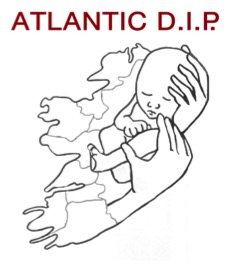
 Exciting news!! The EMERGE trial is now up and running in Galway and our first two babies are delivered and doing great! This landmark study led by Prof Fidelma Dunne aims to evaluate the effectiveness of a medication called metformin in treating gestational diabetes mellitus.
Exciting news!! The EMERGE trial is now up and running in Galway and our first two babies are delivered and doing great! This landmark study led by Prof Fidelma Dunne aims to evaluate the effectiveness of a medication called metformin in treating gestational diabetes mellitus.
We are currently recruiting pregnant women to participate in this trial.If you would like to find out more or volunteer, please contact our research nurse Ms Michelle Courcy Byrne @ 086 0208726.
-
Your comment is awaiting moderation.
Philosophy is the discipline that studies fundamental and universal questions, including existence, knowledge, values, mind, and language. It encompasses a vast number of subjects and problems, from ethics and politicians to metaphysics and logic. Here are principal nuances of philosophy:
1. Definition of Philosophy
Philosophy comes from the Greek words “philos” (love) and “sophia” (wisdom). It is the desire to realize and make sense of the world around us and our place in it.2. The Main branches of philosophy
– Ontology the study of the essence of being and existence.
– Epistemology the study of the nature and limits of cognition.
– Ethics the analysis of ethical principles and concepts of good and evil.
– Logic the study of the forms and principles of correct thinking.
– Socio-political philosophy the study of questions of power, justice and the state.3. Eminent Philosophers
During the history of philosophy, many thinkers have made significant contributions to this science. Some of the most famous include:
– Socrates, considered the progenitor of Western philosophy.
– Plato, a pupil of Socrates, developed the doctrine of forms.
– Aristotle, the creator of logic and a large number of scientific fields.
– Immanuel Kant, known for his Henry Miller critical philosophy and work on moral issues.4. The Relevance of Philosophy in the Modern World
Philosophy remains relevant in the modern world as enables people to understand complex social and moral issues, also develops critical thinking. It influences the legal system, politicians, and various fields of science.5. Practical Applications of Philosophy
Philosophical ideas penetrate daily life. Ethical reflection helps people do the right thing in complex situations, and philosophical analysis contributes to greatest understanding of issues related to technology, art, and social justice.
Philosophy is not only an academic discipline, yes and method of thinking that helps us to understand life’s complexities and make informed choices.
-
Your comment is awaiting moderation.
Philosophy is the discipline that studies fundamental and universal questions, including existence, knowledge, values, mind, and language. It encompasses a vast number of topics and problems, ranging from ethics and political figures to metaphysics and logic. Here are the main nuances of philosophy:
1. Definition of Philosophy
Philosophy comes from the Greek words “philos” (love) and “sophia” (wisdom). It is the desire to realize and make sense of the world around us and our place in it.2. The Main branches of philosophy
– Ontology the study of the essence of being and existence.
– Epistemology the study of the nature and limits of cognition.
– Ethics the analysis of ethical principles and concepts of good deed and evil.
– Logic the study of the forms and principles of correct thinking.
– Political philosophy the study of questions of power, justice and the state.3. Eminent Philosophers
In the course of the history of philosophy, many thinkers have made weighty contributions to this science. Some of the most famous include:
– Socrates, considered the founder of Western philosophy.
– Plato, a pupil of Socrates, developed the doctrine of forms.
– Aristotle, the creator of logic and a large number of scientific fields.
– Immanuel Kant, known for his Philosophy critical philosophy and work on moral issues.4. The Relevance of Philosophy in the Modern World
Philosophy remains urgent in the modern world since it helps people to understand difficult social and moral issues, also develops critical thinking. It influences the legal system, politicians, and various fields of science.5. Practical Applications of Philosophy
Philosophical ideas penetrate everyday life. Ethical reflection helps people do the right thing in complex situations, and philosophical analysis contributes to greatest understanding of problems related to technology, art, and social justice.
Philosophy is not only an academic discipline, as well as method of thinking that helps us to understand life’s complexities and make informed choices.
-
Your comment is awaiting moderation.
Philosophy is the discipline that studies fundamental and universal questions, such as existence, cognition, values, reason, and language. It covers many topics and problems, from ethics and politicians to metaphysics and logic. Here are principal aspects of philosophy:
1. Definition of Philosophy
Philosophy comes from the Greek words “philos” (love) and “sophia” (wisdom). It is zeal to understand and make sense of the world around us and our place in it.2. The Main branches of philosophy
– Ontology the study of the essence of being and existence.
– Epistemology the study of the nature and limits of knowledge.
– Ethics the analysis of ethical principles and concepts of good deed and evil.
– Logic research of the forms and principles of correct thinking.
– Socio-political philosophy the study of questions of power, justice and the state.3. Eminent Philosophers
In the course of the history of philosophy, many thinkers have made significant contributions to this science. Some of the most famous include:
– Socrates, considered the founder of Western philosophy.
– Plato, a pupil of Socrates, developed the doctrine of forms.
– Aristotle, the creator of logic and a huge number of scientific fields.
– Immanuel Kant, known for his own James Joyce critical philosophy and work on moral issues.4. The Relevance of Philosophy in the Modern World
Philosophy remains relevant in the modern world because it helps people to understand difficult social and ethical issues, and also develops critical thinking. It affects the legal system, politicians, and various fields of science.5. Practical Applications of Philosophy
Philosophical ideas penetrate daily life. Ethical reflection helps people do the correct thing in difficult situations, and philosophical analysis contributes to most excellent understanding of issues related to technology, art, and social justice.
Philosophy is not only an academic discipline, but also method of thinking assists us to understand life’s complexities and make informed choices.


